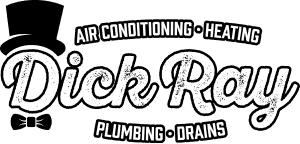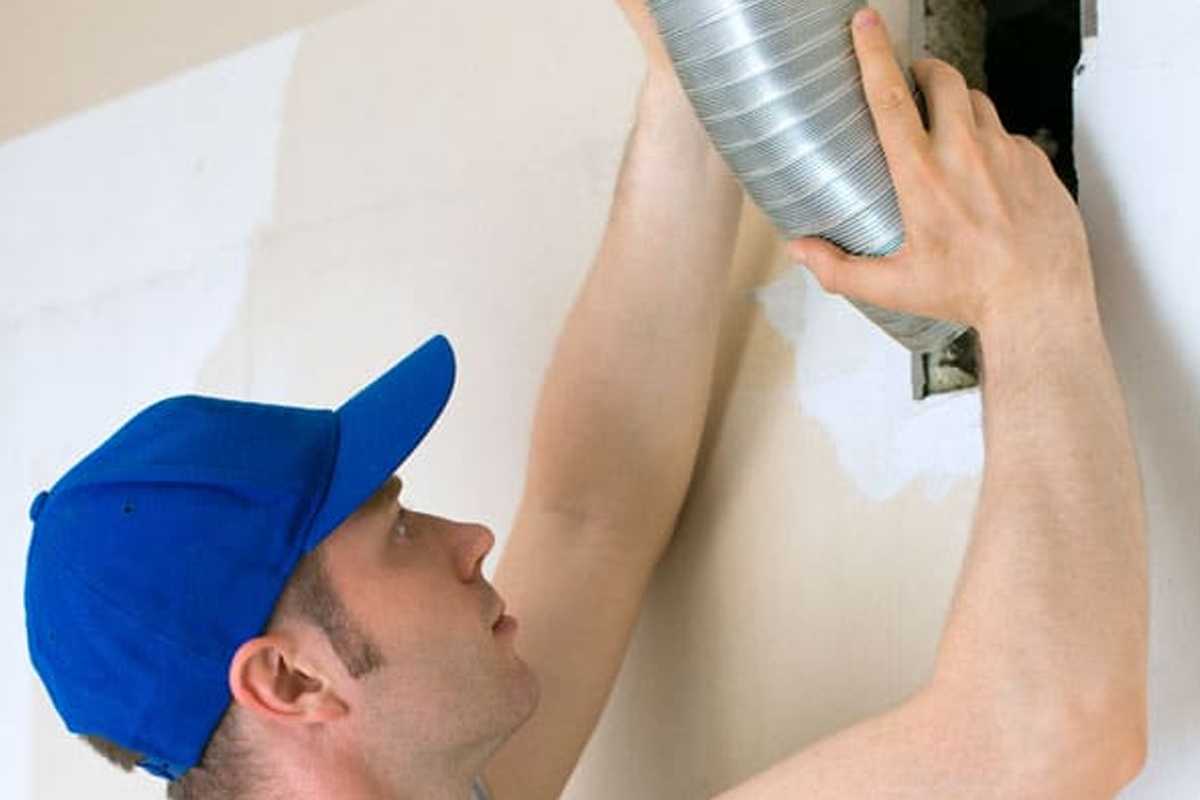When an appliance in your home needs fixing, you can choose between two types of repair professionals: appliance repair specialists and HVAC specialists. In most cases, one is better suited for the task than the other. Deciding who to call depends on the type of issues you’re having with your appliance, including the severity and affected parts.
Our helpful guide can help you learn the differences between these two types of technicians and determine which specialist can better perform your needed repairs.
Why You Should Know the Difference
When an appliance breaks or malfunctions, many homeowners will automatically call an appliance repair technician. However, despite their name, appliance repair specialists are not qualified to repair all appliances in your home. For some systems — namely heating, cooling, ventilation and refrigeration — an HVAC repair specialist is vastly more qualified to find and fix issues.
An appliance repair technician may have a basic understanding of how these mechanisms function and may even agree to repair your affected appliance. However, it is only with an HVAC specialist that you can be confident your issue will be properly diagnosed and quickly fixed.
Conversely, if your microwave breaks or your dishwasher is leaking, these tasks are best left with an appliance repair specialist. An HVAC repair specialist may have a general idea of what is causing the issue and how to repair it, but they lack the training and experience an appliance repair specialist has in these fields.
Appliance Repair Specialists and What They Do
Appliance repair specialists are trained to fix a large number of common household appliances. Because of this training, they’re knowledgeable in a wide range of fields, including plumbing, electrical work and refrigeration. As they work with a vast array of appliances, they are familiar with the many issues that each can experience. In addition to the initial training they undergo, appliance repair specialists must stay up to date with the latest technologies related to the instruments they repair.
Appliances that these specialists commonly repair include:
- Refrigerators
- Washers
- Driers
- Dishwashers
- Microwaves
- Ranges
- Ovens
- Gas Grills
- Water heaters
- Cooktops
- Trash compactors
Each appliance has its own specifications and features, which makes every maintenance job unique. Appliance repair specialists handle a range of tasks related to these machines, including:
Disassembling equipment: This step allows the technicians to diagnose problems so they can make repairs. They may also take apart appliances for maintenance purposes.
Observing equipment in operation: These technicians also study and inspect appliances during normal execution, so they can detect specific issues — such as leaking fluid or loose parts.
Locating shorts and grounds: Technicians do this by following diagrams, tracing electrical circuits and conducting tests with equipment like circuit testers.
Using references when troubleshooting: These references can include product manuals, schematic drawings and troubleshooting guides.
Testing electrical circuits: Technicians test electrical circuits and other components for proper functioning.
- Servicing and repairing domestic gas and electrical appliances: Repair professionals repair basic instruments you may employ for everyday use. These machines include refrigerators, stoves, washers and dryers.
- Repairing parts: These specialists may repair worn, defective or damaged parts. Components they may fix include switches, bearings, belts, transmissions, gears, circuit boards and faulty wiring.
- Assembling new units: Appliance repair specialists will also know how to reassemble units they’ve disassembled for repair or inspection.
- Cleaning appliances: Technicians clean equipment, components and tools to make sure they are in good working order. They will also lubricate parts as needed.
- Dealing with refrigerants: Another one of their duties is conserving, recovering and recycling the refrigerants in cooling systems.
- Leveling equipment or machines: Refrigerators and washing machines are common examples of appliances that require leveling for optimal functioning.
- Connecting hoses: Appliance repair specialists use hand tools to connect water lines to pipes for water dispensers and ice makers.
- Working with pipes: Specialists measure, cut and thread pipes. They then connect them to feeder lines and appliances.
- Setting appliance thermostats: Specialists will also check these devices to make sure they’re working correctly.
- Showing customers how they should operate and care for their appliances: Repair professionals also give out useful information like emergency service numbers in case subsequent issues arise.
- Responding to emergency calls: Appliance repair specialists react to problems requiring immediate attention, like gas leaks.
- Dealing with gas systems: Technicians light and adjust the pilot lights found on gas stoves and examine burners and valves for flame and gas leaks. They also inspect and test gas pipelines to find leaks and poor connections and determine the flow and pressure of the gas.
- Fitting appliances into installation locations: Specialists must take measurements to find out whether a specific machine will fit into the desired spot. They also perform minor carpentry work, if needed, to make sure the device is installed correctly.
- Hanging steel supports: Technicians hang steel supports from joists or beams to secure vents, hoses and gas pipes.
- Disassembling and reinstalling kitchen cabinets: Technicians dismantle and reinstall existing cabinets as well as assemble and install prefabricated kitchen cabinets. This process comes in conjunction with installing the appliance.
What Does an HVAC Specialist Do?
What is an HVAC technician? Whereas an appliance repair specialist is trained to install, maintain and repair a wide range of common domestic appliances, HVAC specialists specialize in just a few. These tasks include servicing heating, ventilation, air conditioning and refrigeration systems, which control the air quality, humidity and temperature in homes, schools, office buildings and other facilities. HVAC repair professionals keep a structure’s occupants comfortable and healthy.
Heating and cooling specialists receive extensive training to handle jobs related to HVAC mechanisms and technology.
Here are a few types of tasks that HVAC specialists generally perform:
1. Installation
Generally, HVAC technicians install units according to an architectural engineer’s or architect’s specifications. Before they perform the installation, they will make calculations needed to figure out the appropriate type of HVAC system. After installing the unit, they will test the system’s piping and connections and hook the HVAC unit up to the distribution system or ductwork.
A refrigerant technician, who must have an EPA certification, will also add refrigerant to the system. No matter what the job is, HVAC specialists must adhere to local HVAC codes and government regulations regarding the handling of refrigerants and other fluids.
2. Maintenance
To ensure a heating, cooling or ventilation system is efficient, HVAC specialists must also perform maintenance checks regularly. These checks usually include cleaning and testing the blower fan, checking the cooling system’s coolant level and testing the thermostat and system operation. Specialists also advise customers on how to prevent future problems by providing maintenance tips, such as regularly changing filters and oiling parts.
3. Repair
HVAC specialists fix issues with HVAC units, HVAC controls such as thermostats, air handling systems, refrigerant levels and compressors. The HVAC’s compressor is a primary component that enables the unit to function. If this element doesn’t turn on, you won’t have access to air conditioning. Similarly, you’ll have a hard time controlling your home’s temperature level with a faulty thermostat.
4. Ductwork
HVAC specialists may also assemble and install the ductwork that delivers the cooled or heated air from HVAC systems. This kind of maintenance includes cutting sheet metal to make ducts, attaching them to HVAC units and mounting the ductwork to buildings.
5. Energy Efficiency Assessment
As the cost of power is rising, building operators are becoming more interested in energy conservation. As a result, energy efficiency has become a key part of HVAC work. HVAC specialists can determine how much electricity an HVAC system uses and upgrade the system to be more energy-efficient.
Common Tasks for HVAC Technicians
HVAC technicians don’t repair household appliances like appliance repair specialists, but they do handle a range of services related to heating and cooling. When your AC turns off in the summer — or your heater stops working in the winter — their job is just as essential in helping you maintain your household.
Check out the types of installations, repairs and other tasks commonly performed by HVAC specialists:
1. Heating and Air Conditioning Servicing, Repair and Installation
HVAC specialists repair furnaces and air conditioners and keep them operating efficiently and safely. One task they often perform for AC units is detecting freon leaks. Many air conditioning units require freon periodically and, if there’s a leak, it can cost a lot of money in the form of higher electric bills. HVAC professionals can come to your home to add freon to your unit and, while they’re at it, find and repair any leaks.
The most effective method for locating freon leaks is adding a fluorescent dye together with the new freon. Several weeks later, the HVAC professional will return to your home and shine a UV light on all parts of your AC unit. Any places that appear a bright greenish-yellow color indicate the presence of the dye and allow the technician to pinpoint the source of the leak.
2. Humidifier Servicing and Installation
HVAC specialists are also trained to install and fix humidifiers, which are essential appliances for maintaining good air quality in your home.
One common task related to this is installing humidification control systems. These appliances, which moisten your dry air in the winter and dry your moist air in the summer, are just as important for your comfort as heating and AC systems. Humidification control systems have seen many advancements in recent years, with the newest models featuring an outdoor temperature sensor that, together with a tiny microprocessor, lets the humidifier adjust its settings automatically based on the temperature outside.
While air conditioners today are much more energy-efficient than they used to be, most are still not great at removing the humidity in your home, which can make summers uncomfortable. If you’re having trouble controlling humidity, HVAC specialists can add a central dehumidification system to the existing air handler in your home.
3. Carbon Monoxide Testing and Air Purification
HVAC specialists can easily and quickly test your home’s air and your furnace’s heat exchanger or flue products for lethal carbon monoxide. They also install and service air cleaners, which are often helpful to people with allergies. Adding an air purifier to your system removes harmful pollutants from your home’s atmosphere, which can improve your overall health. Numerous kinds of indoor pollutants can affect your health, including lead, nitrogen dioxide and formaldehyde.
4. Heat Recovery Ventilator Installation and Service
Modern homes tend to be built much tighter, which allows them to be more energy-efficient. However, this lack of natural ventilation also leaves houses feeling stuffy. While opening the window is a solution, it’s not energy-efficient and can be uncomfortable during hot or cold weather.
By having an HVAC specialist install a Heat Recovery Ventilator (HRV), you can enjoy high-quality ventilation without sacrificing energy or comfort. HRVs work by removing stale air from indoors and bringing in fresh air from outside without the negative energy impact.
5. WiFi Communicating Thermostat Installation
HVAC specialists can install WiFi communicating thermostats, which allow you to control your cooling and heating systems and check on your home’s temperature during the winter. This feature is especially useful if you travel a lot and need to make sure the furnace is working so your pipes don’t freeze. With a WiFi communicating thermostat, you can check on and change your thermostat settings from anywhere, as long as you have a device with an internet connection.
6. High-Efficiency Air Filter Installation
The air filters that come with furnaces and air conditioners tend to be inefficient — they only filter out lint and other large particles that would otherwise clog up the appliance’s interiors and cause serious damage. These default air filters are the “bare minimum requirement” for protecting furnaces and AC units.
HVAC specialists can provide and install higher-quality filters, such as electronic air cleaners or high-efficiency media filters, which do a better job of keeping your indoor air clean. They remove tiny particles like pollen, which can cause sinus problems, hay fever or allergies.
7. Zoning System Installation
If your home has multiple stories, and you’ve noticed rooms upstairs are too hot in the summer or the basement is too cold in the winter, the solution may be a good zoning system. Heating and cooling specialists can implement this by installing an additional thermostat in that hot upstairs room.
This way, you can use the upstairs thermostat to control the temperature upstairs, and the existing downstairs thermostat to control the temperature downstairs.
8. High-Efficiency ECM-Type Motor Installation
If your heating or cooling unit is older, chances are it has the traditional, less-efficient permanent split capacitor (PSC)-type motor. Another service that HVAC professionals provide is replacing this old motor with an electronically commutated (ECM)-type, which uses less electricity, lowering your electric bill in the summer and winter. It also boosts your unit’s seasonal energy efficiency ratio (SEER) and makes it much easier to dial in the precise airflow your system needs.
9. Variable-Speed Blower Motors and Control System Installation
HVAC specialists can also install variable-speed blower motor systems. These consist of two main parts — an advanced, energy-efficient ECM-type blower motor and a circuit board and control system that adjust the motor speed for maximum comfort and efficiency — these motors are also extremely quiet.
Who Should I Hire?
If an appliance or system fails in your house, you should call the type of technician most suitable for the repair job. Generally speaking, if a household appliance breaks, whether it’s a washing machine or oven, you’ll want to call an appliance repair specialist — they have the training, experience and tools to repair it.
However, if you’re experiencing issues specifically with your heating, cooling, ventilation or refrigeration systems, you’ll want to call an HVAC specialist. Even though an appliance repair specialist may also be able to solve some of these issues — such as ones related to your refrigerator’s cooling system — you should still opt for an HVAC specialist. Whereas an appliance repair specialist does have some knowledge and experience in these fields, HVAC specialists are specifically trained in these areas and are better suited to make repairs.
Choose Dick Ray Master Plumber to Solve Your HVAC Problems
If you’re searching for a reliable and reputable HVAC repair company in the Kansas City area, look no further than Dick Ray Master Plumber Heating and Cooling. Whether you want to make your AC or heating more energy-efficient, repair something broken or simply have an interest in routine maintenance, our knowledgeable, skilled technicians will be happy to assist you.
Schedule an appointment online with us or give us a call at (913) 214-8770 today.





